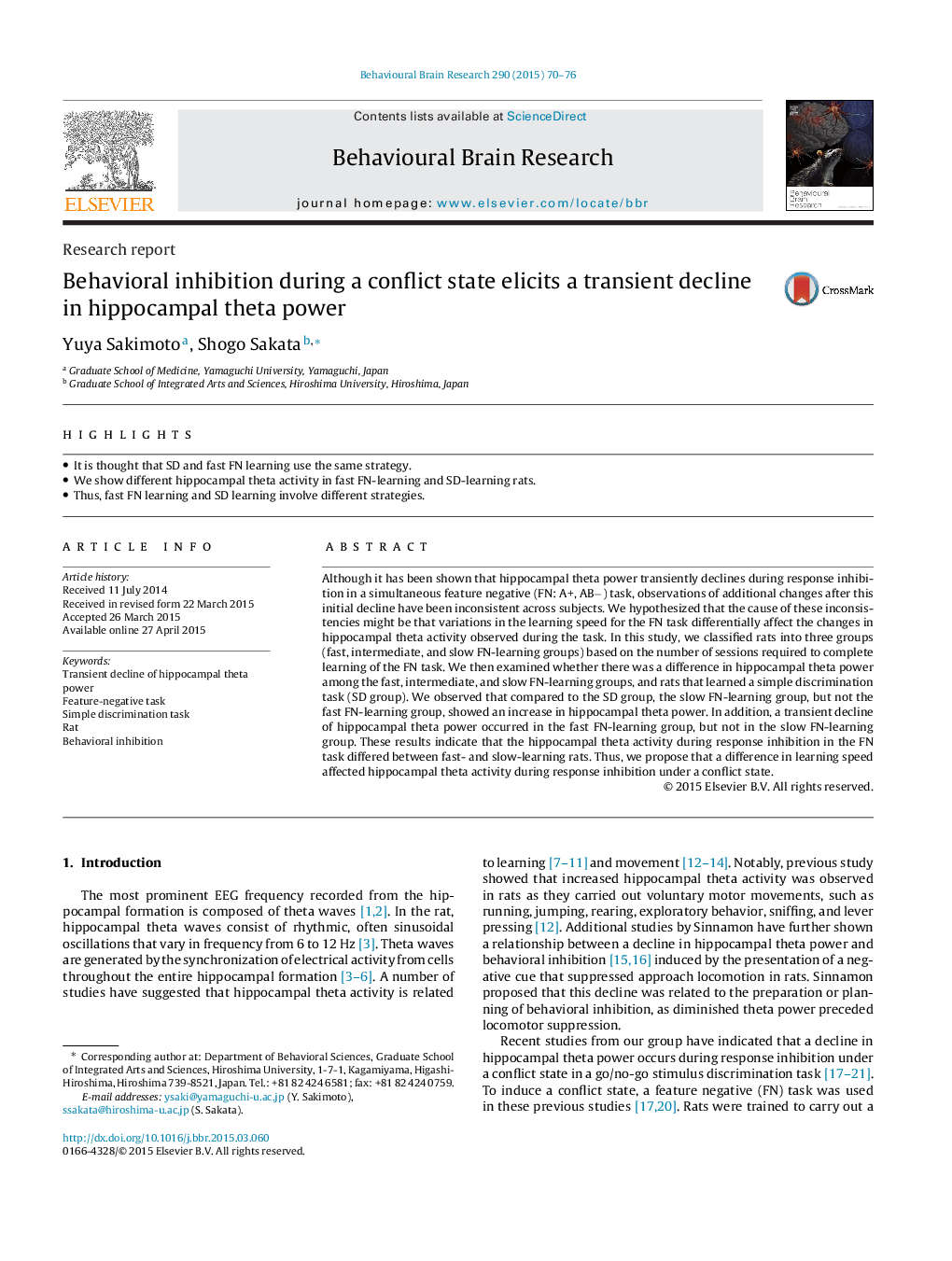| Article ID | Journal | Published Year | Pages | File Type |
|---|---|---|---|---|
| 6256661 | Behavioural Brain Research | 2015 | 7 Pages |
â¢It is thought that SD and fast FN learning use the same strategy.â¢We show different hippocampal theta activity in fast FN-learning and SD-learning rats.â¢Thus, fast FN learning and SD learning involve different strategies.
Although it has been shown that hippocampal theta power transiently declines during response inhibition in a simultaneous feature negative (FN: A+, ABâ) task, observations of additional changes after this initial decline have been inconsistent across subjects. We hypothesized that the cause of these inconsistencies might be that variations in the learning speed for the FN task differentially affect the changes in hippocampal theta activity observed during the task. In this study, we classified rats into three groups (fast, intermediate, and slow FN-learning groups) based on the number of sessions required to complete learning of the FN task. We then examined whether there was a difference in hippocampal theta power among the fast, intermediate, and slow FN-learning groups, and rats that learned a simple discrimination task (SD group). We observed that compared to the SD group, the slow FN-learning group, but not the fast FN-learning group, showed an increase in hippocampal theta power. In addition, a transient decline of hippocampal theta power occurred in the fast FN-learning group, but not in the slow FN-learning group. These results indicate that the hippocampal theta activity during response inhibition in the FN task differed between fast- and slow-learning rats. Thus, we propose that a difference in learning speed affected hippocampal theta activity during response inhibition under a conflict state.
